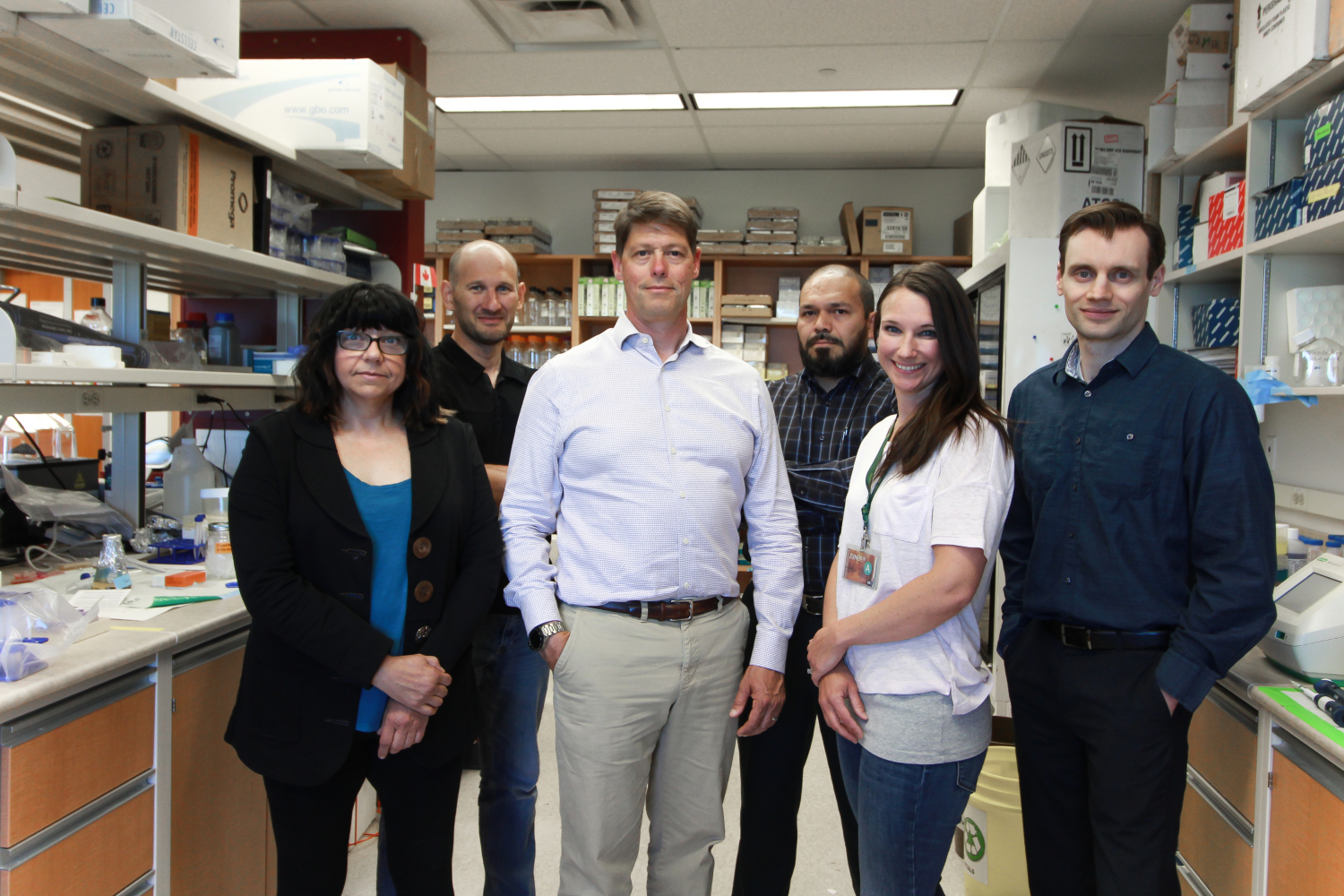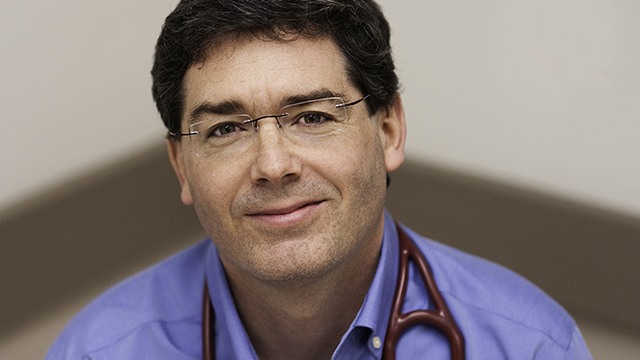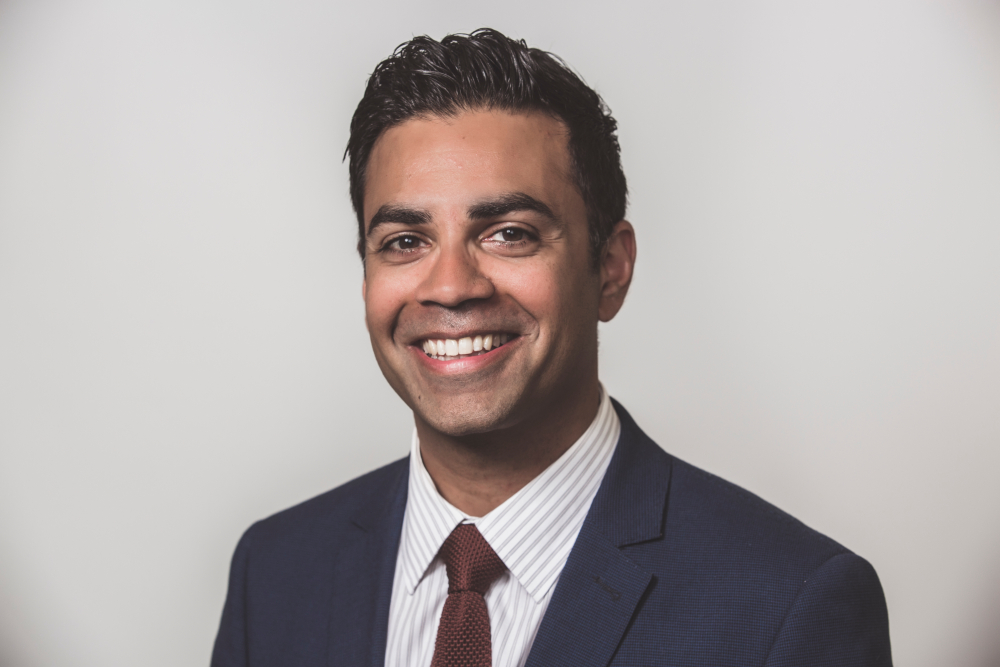This is a round-up of relevant news and media stories involving the Faculty of Medicine & Dentistry. We appreciate you relaying information which is relevant to faculty members in your respective areas.
TOP STORIES
Global News: Stopping cancer from spreading

John Lewis, the Alberta Cancer Foundation Frank and Carla Sojonky Chair in Prostate Cancer Research at the U of A, talks about research identifying the genes responsible for helping cancer spread. Coverage also appears on CBC Radio and in Plymouth Herald, Science Daily, Cornwall Live, The London Economic, Talking Democrat, ThreePMNews and Cusabio.

U of A researchers are exploring the potential benefits of taking blood pressure medications at bedtime. Scott Garrison, an associate professor of family medicine, is interviewed. Story also runs on Global TV Lethbridge, Global TV Calgary, and iNews 880 Radio.

The federal government unveiled plans to "severely limit" the advertising of opioids to doctors, on the same day that it released numbers showing that nearly 4,000 Canadians died from opioid-related overdoses in 2017, mostly due to fentanyl and fentanyl-related substances. And doctors aren't sure why. Hakique Virani, an assistant clinical professor of medicine at the U of A, is interviewed.
RESEARCH
Medical Xpress: The molecules that energize babies' hearts
Japan-Canada research team, led by U of A professor of pediatric cardiology Gary Lopaschuk, found that a metabolic process that provides the heart muscle with energy fails to mature in newborns that have thickened heart walls (hypertrophy) due to congenital heart disease. This finding could lead to a treatment for hypertrophy.
Healio: Breast-feeding protects infants from overweight
According to a study led by Jessica Forbes with the U of A's Department of Pediatrics, breast-feeding allows the infant microbiome to develop in a healthy manner and may protect infants from developing overweight in the future.
Medical Xpress: Research identifies possible new pathway to treat anxiety
William Colmers, a professor of pharmacology at the U of A, is trying to understand why stress affects people differently, and to identify possible new therapeutic approaches to anxiety disorders.
Drug Target Review: Pyroptosis brain cell death identified as novel pathway for MS treatment
Researchers at the U of A, led by professor of neurology Chris Power, have discovered a unique process of brain cell death called pyroptosis that affects the cells that are most vulnerable in multiple sclerosis (MS). Coverage also appears on Medical News Today.
Healthline: Newly Discovered Type of Heart Attack Primarily Affects Women
Researchers at the U of A, led by assistant professor of cardiology Kevin Bainey, say the heart attack known as MINOCA doesn't involve obstructed arteries and is often dismissed as minor by medical professionals.
CBC News: Analyzing the ick factor: U of A study looks at deterrents to being a poop donor
If you're looking to make a little extra coin-as well as providing relief for people with health issues-why not donate your poop to science? That question was central to a study led by Breanna McSweeney, a third-year U of A medical student who was interested in finding out why people donate their fecal matter and what barriers deter others from doing so. Coverage also appears on InfoNews.
Healthline: Children of Older Mothers May Face More Health Risks as Adults
Children born to older mothers may have more heart risks later in life, according to a new study.
Researchers at the U of A in Canada have also concluded that this may be more true of male offspring. Their report is published in The Journal of Physiology and was led by Sandra Davidge, a professor of obstetrics and gynaecology at the U of A.
The Guardian (UK): Synthetic biology raises risk of new bioweapons, US report warns
The rapid rise of synthetic biology, a futuristic field of science that seeks to master the machinery of life, has raised the risk of a new generation of bioweapons, according a major US report into the state of the art. The story mentions how earlier this year, a team at the U of A built an infectious horsepox virus. Related coverage also appears in Daily Mail, Tech Times and the Edmonton Journal.
Kamloops Matters: Ontario's Darlington nuclear reactor to produce isotope used for medical imaging
This story about how Ontario plans to modify its Darlington nuclear plant to help produce radioactive isotopes also includes mention of how medical isotopes are being researched or produced elsewhere in Canada-including at the U of A-on a smaller scale using different technologies.
ABC News: Gross! Pool smell comes from chemicals breaking down urine, fecal matter
That familiar "pool smell" might actually be a sign that someone had to go but didn't go to the restroom. There can be anywhere from 8-20 gallons of urine in a typical pool, according to a study by the U of A. Story runs on several ABC TV stations, including New York, San Francisco, Chicago and Philadelphia.
Bloomberg: The DNA Cops Who Make Sure the World's Deadliest Viruses Aren't Rebuilt
Story about biosecurity mentions that a small research team at the U of A engineered a cousin of the lethal smallpox virus called horsepox, using strands of DNA they received in the mail. The organism that they built wasn't a threat to humans. But when the scientists published their findings, an uproar ensued.
Vue Weekly: Anxiety Fix May Be Closer Than Once Thought
A U of A team found a potential culprit in the brain that causes anxiety, and a potential tool to combat it. William Colmers, a professor of pharmacology at the U of A, is interviewed.
EXPERT
Dina Kao, a gastroenterologist and associate professor of medicine at the U of A, said the falling rates of hospital-based C. difficile are encouraging, but another challenge is the number of cases that go undetected in the community.
Global News Edmonton: A closer look at CMV and its effects on babies
With all of Canada's vaccination and screening programs, congenital infections are very rare. But cytomegalovirus (CMV) is still around. And even though more than 80 per cent of babies born with CMV will have no effects, some are not so lucky. Wendy Vaudry, a pediatric infectious disease specialist at the U of A, says while there is no way to prevent the infection aside from regular hand washing, newborn screening programs can help.
PEOPLE, PARTNERSHIPS AND EDUCATION
Red Deer Advocate: Canada Winter Games: Dr. Bill Young has athletes' health best at heart
A profile of Bill Young who is serving as the Medical Services Chair with the 2019 Canada Winter Games. Young is tasked with creating and managing the medical services plan to care for all the competitors. Born and raised in Edmonton, Young went to the U of A and graduated from Medicine in 1974.
Global News Edmonton: Family Matters: Organ donation funding
The University Hospital Foundation is contributing over $1 million to improve the lives of people waiting for organ transplants. One of the researchers getting the Alberta Transplant Innovating Funding is Puneeta Tandon, an associate professor of gastroenterology at the U of A. She has come up with a number of physical exercises for patients to ensure they are healthy enough to accept a transplant. Coverage also appears on CTV Edmonton (at 38:00 of the video) and City TV Edmonton.
CBC News: 'What happened was wrong': Why this doctor spoke up about her #MeToo experience
As a medical student, Kim Kelly faced her toughest challenge when her medical supervisor made sexual advances. Now an associate clinical professor of family medicine at the U of A, she's speaking out about her experience.